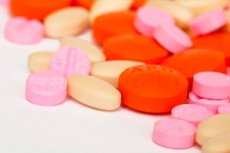
All iLive content is medically reviewed or fact checked to ensure as much factual accuracy as possible.
We have strict sourcing guidelines and only link to reputable media sites, academic research institutions and, whenever possible, medically peer reviewed studies. Note that the numbers in parentheses ([1], [2], etc.) are clickable links to these studies.
If you feel that any of our content is inaccurate, out-of-date, or otherwise questionable, please select it and press Ctrl + Enter.
Back pain after antibiotics
Medical expert of the article
Last reviewed: 06.07.2025

Most often, the cause of this symptom is a stretch of muscles and ligaments as a result of unsuccessful actions or unusual load. However, back pain after various types of activities can also be a sign of dangerous diseases that manifest themselves after considerable physical exertion.
Treatment of many diseases involves taking antibacterial drugs, however, some patients complain of back pain after the end of the course of treatment or even at the very beginning after some doses of the prescribed medication.
Such pains can be caused by various reasons, which are not always related to taking antibiotics. Perhaps the back hurts for another reason, and it just happened that way.
To determine the cause of the pain syndrome, you need to see the doctor who prescribed the treatment. Antibacterial drugs can easily cause back pain, primarily by disrupting kidney function. He will conduct an examination and prescribe the necessary tests. It is impossible to detect drug-induced nephropathy simply by symptoms.
Experts consider aminoglycoside antibiotics (Gentamicin, Neomycin, Streptomycin, etc.) to be the most aggressive to the kidneys. And their combination with polymyxins, cephalosporins, and some diuretics causes side effects on the urinary system in about a third of patients.
Also, cephalosporin antibiotics themselves catalyze the development of renal failure (Cefazolin, Cefalexim, Cefuroxime).
Much depends on the condition of the patient's kidneys before the course of antibiotic therapy. If they were already not working at full capacity, then the likelihood of side effects increases.
The kidneys perform the excretory function in the body, passing through themselves the bulk of substances entering it. Many drugs can disrupt their work - antibiotics of other groups, sulfonamide drugs, diuretics, cytostatics and others. Therefore, you can only be treated with medications as prescribed by a doctor, and if your back hurts during or after treatment, you must inform him about it and find out what caused the pain. You should not expect that by interrupting the course of treatment, you will quickly get rid of the pain. Perhaps, of course, this will be so, but the side effects of taking antibiotics (which are still not always possible) can be very serious. For example, aminoglycoside antibiotics are detrimental to the proximal tubules of the kidneys, in which 2/3 of the fluid entering the body, 100% of glucose and amino acids, 4/5 of the filtered bicarbonates and phosphates are reabsorbed.
Self-treatment of drug-induced nephropathy can lead to further complications both from the kidneys and the underlying disease for which the medications were prescribed. And self-medication with antibiotics is completely unacceptable.


 [
[